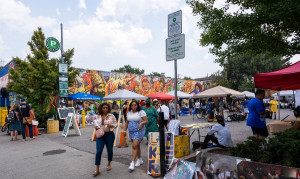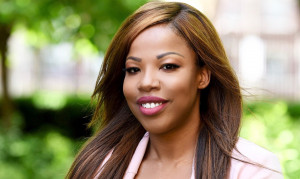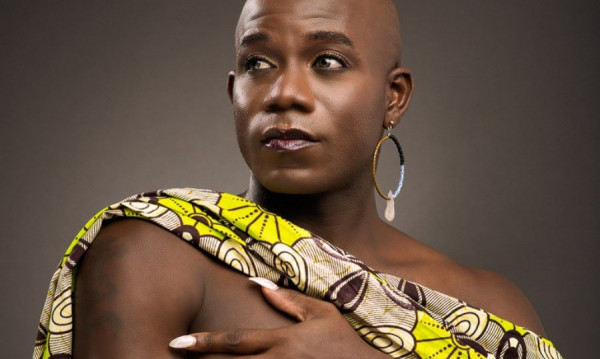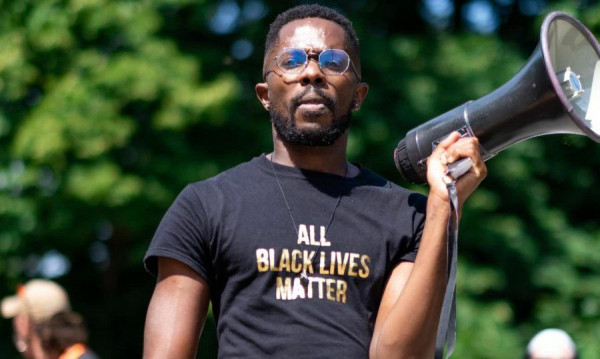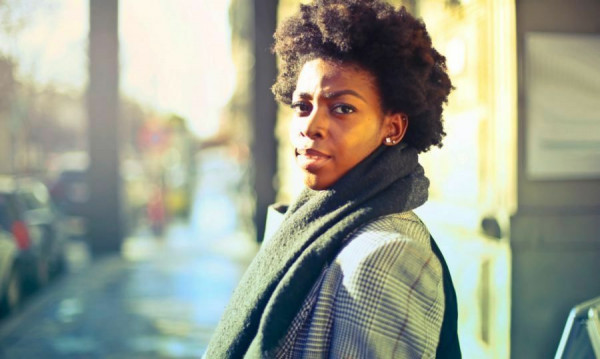Rodney Diverlus, a co-founder of Black Lives Matter - Canada, says the new centre fills an urgent need for a place of permanence, where dedicating a space for the work of protecting Black lives and fighting for justice can happen more fruitfully. ‘Artivism’ (promoting a political agenda through acts considered to be art) has remained a key strategy for BLM - Canada to propel much-needed discussions and push for reform.
Diverlus says the organization is committing this space for those whose mediums of expression for change differ from the normative or mainstream - whose liberation work includes healing justice, community education, and art as a healing practice. The space already boasts a full kitchen, several lounge areas and will soon be outfitted with event spaces, a dance floor, a sound recording booth, offices and meeting spaces, and a garden.
Wildseed will also be used as a resource to document and preserve Black history, with a goal to create a comprehensive archival system for Black history in Canada.
“There were a number of priorities articulated to us over time, but we've been very limited in being able to support people because of a lack of space. This will be a space where Black artists, Black creatives can be creating cultural products, whether that be recording a podcast or getting writing support or creating art in a variety of different ways.”
The centre will provide free bookable space for BLM chapters to meet the diverse needs of the community. “If the space becomes a nexus for Black creativity, Black imagination and Black radical possibilities, then I think we would have succeeded in our initial goals for it.”
The building, on 24 Cecil Street in Toronto (formerly housed Gilda’s Club, a cancer support community) was put on the market for $8.2 million. Diverlus says it was vital to the organization not to have a mortgage, and so the building was purchased outright by BLM - Canada through a mix of public and private donations raised over the past five years as well as a grant from the larger Black Lives Matter Global Network. The city of Toronto has pledged to provide BLM - Canada with $250,000 for programming.
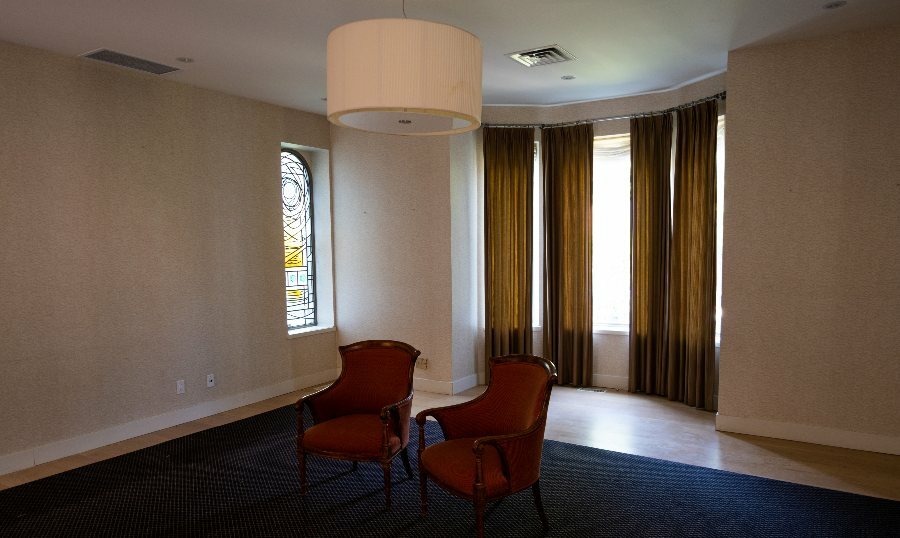
(Inside the new Wildseed Centre for Art & Activism) PHOTO CREDIT: Robin Pueyo
Since the launch, many have taken to social media to express concerns over the city’s $250,000 contribution, due to Black radical movements historically being forced to deviate from their original principles when dependent on state funding.
In 1968, The Black United Front was created to provide resources while advocating for the rights of the Black community within Nova Scotia. When the government withdrew its financial support, it forced the organization to restructure and abandon its more radical principles to include government acceptable objectives to which funding was restored.
“You will never be able to buy us. You will never be able to limit how critical we become about any of our institutes, any of our funders, the city, the province, the federal government, any level of government, any institution. The need for freedom, to be critical of them, to hold them to account is still paramount,” Diverlus affirms.
Diverlus says he’s also aware opening up the Wildseed Centre for Art and Activism means avoiding the non-profit industrial complex, and the ways in which the state leverages nonprofits to control social justice movements and suppress radical ideas.
“How do we take the very criticism that we have placed on the institutions that we have worked with in the past, all of us, how do we place those criticisms? And self-reflect on how we can do the best that we can to avoid the pitfalls of other not-for-profits and other charities.”
The No Pride in Policing Coalition, a multi-racial, queer and trans group formed in 2018 to support the demands of Black Lives Matter - Toronto has expressed concern in a statement posted to Twitter. The organization advocates for the defunding and abolition of police, while calling for these resources to be transferred to community-based groups to reach those in need.
A spokesperson for the No Pride in Policing Coalition, Beverly Bain says the organization is disappointed by the decision for BLM - Canada to accept funding from the state. Bain contends it is contradictory to their original stance of denouncing any relationship to the city.
“I think what is at stake here is the contradiction of a movement of what was understood as a Black radical movement for abolition and defunding of policing, and also a challenge to the city's anti-Black policies that continue to be perpetrated on Black, racialized, Indigenous and poor people that have not shifted. If anything, it has escalated.”
Also an activist for over 40 years, Bain says she has seen this play out before, where activist groups who turn to the state for support lose the ability to challenge it and the system.
“People have started organizing in different ways again and calling for defunding and abolition. So the city’s move to fund BLM - Canada is also a way to shut that down, to kill that kind of momentum, to kill that kind of activism,” Bain explains. She says the city rushing to fund an activism centre while ignoring calls to support critical efforts like affordable housing is a way of undermining the movement.
“Therefore we cannot be in negotiations and cahoots with a city that has not in any way shown any change or shift or any response to our lives in any kind of livable way,” says Bain.
Diverlus sees it differently. He says BLM - Canada is not in a financial partnership with any entity whatsoever. For him, taking money from the city of Toronto does not amount to a partnership.
“These funds are from the public purse; they belong to us, the people; not the state. When we as people demand reparations for our people, where will those funds come from? The public purse. The wealthy in this city hoard our public dollars and keep them for their neighbourhoods, their communities. Our job as community advocates is to aggressively push for these to be reallocated to our communities, to self-determine how best to use them.”
In a sense, Diverlus says, the Wildseed Centre itself, is a form of financial reparations.
While Bain believes the idea of having spaces to support activism is a good idea, she points to the example of The Black Panther Party, which was able to independently build a Community Learning Centre and adopt initiatives like Free Breakfast for School Children. Their programs and operations were financed on community support, fund-raising activities, individual contributions, and private foundation grants.
Pointing towards our current climate, she says we are also in a time of serious political duress where the needs of the most vulnerable are not being met, suggesting that perhaps a focus on ‘artivism’ is misplaced.
“We should be addressing those who are most marginalized in our society, not giving to those who are already privileged, or to provide for those who already have access or who can find other ways to do their work in other spaces, right? Where it doesn't require a space that is based on millions of dollars being created for them and funded for them on an ongoing basis from a state institution whose only goal is to undermine any kind of social movement,” Bain says.
Bain says this is not an attack nor aimed to single out BLM - Canada. The No Pride in Policing Coalition has also spoken out against Pride Toronto after accepting money from the city. She explains one of the foremost things about defunding and abolition, is the baseline of accountability when working towards building a better future.
“It took a 360 approach to get a morsel of the policy victories we won. And then in one snap election, all of it was gone; erased by Ford. Without permanent infrastructure, we risk yet again losing momentum. All the efforts put into the last few years will just dissipate, as it has happened in the past. We want to learn from our past as a way of shaping our future, and we believe that the best way to do that is creating fertile ground to be able to incubate countless interventions, campaigns, and strategies from the same place.”
Along with state funding, many have also questioned funds for the Wildseed Centre arising from BLMGN in the United States. The group has undergone a barrage of public criticism recently from local chapters (and families affected by police violence) on a lack of transparency when allocating donations. The foundation raised $90 million in 2020 alone.
Bain also asserts these concerns, detailing that many chapters in the U.S. are still waiting to see their portion of money to complete different work within their communities alongside families who haven’t received sufficient funds, despite money being raised in the name of their murdered family members.
“So how does then Black Lives Matter - Canada get $8.1 million? And there are organizations in the U.S where this money was actually raised in the U.S., particularly in the Southern states of the U.S. where people are really deprived, where Black people are really struggling and would like to have money for various kinds of community projects.”
Diverlus explains the importance of distinguishing the Wildseed Centre project as one of BLM - Canada and not Toronto. BLM - Canada was created to perform administrative and infrastructural elements of national organizing allowing local chapters to focus on grassroots organizing, mobilizing, and building power.
The Black Lives Matter movement also works decentralized; meaning each group decides on their jurisdiction. Diverlus says though BLM - Canada, therefore, has no authority over the decisions of BLMGN, they have consistently called on the foundation to respond to the transparency requests of local communities.
He says Canadian chapters have been criticized in the past for focusing on Black American experiences of police brutality and neglecting those locally. Their primary concern is now centering the needs of families within Canada.
“We have to recognize that there are thousands of individuals from Canada who donated to BLMGN over the years, from well-known Black Canadians, to individuals who donated last June. And yet, Black communities in Canada have never received adequate resourcing. Our priority has been to fight for funding from BLMGN to provide seed funding for each official Canadian chapter, funding to create this home for BLM chapters.”
In addition to launching the Black Mutual Aid Fund to address some of the rapid-response needs of individuals, Diverlus says BLM - Canada is developing and set to launch a Black & Indigenous Family Support Network. The Wildseed Centre will focus on granting continuous support to the most vulnerable populations by increasing programs and resources offered to the community.
“This is step one; nothing is final, this project is at its infancy. There is always room for dialogue as we collectively build out this centre. Anything worthwhile is done collectively, so hearing from the community about their dreams, visions and desires for a space like this will be crucial to its survival. Let's work from a generative place of possibility.”
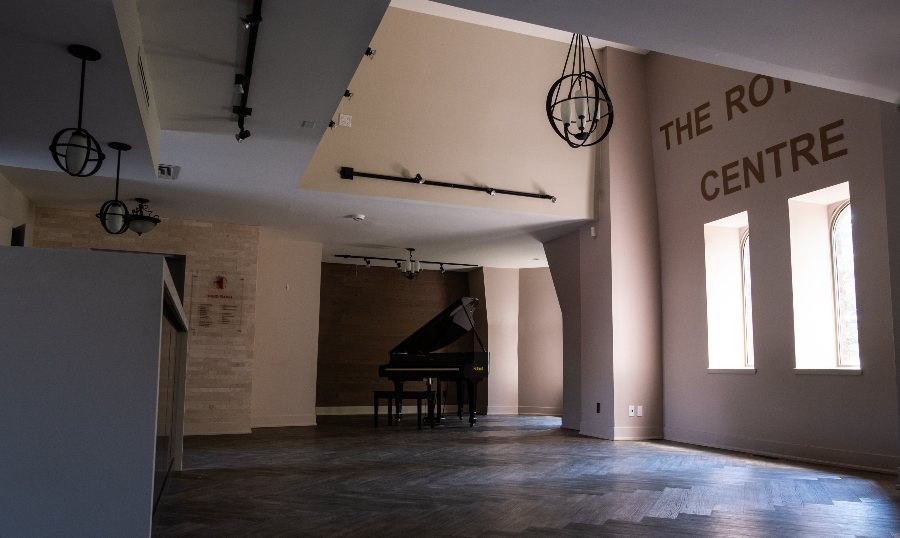
 By
By 

